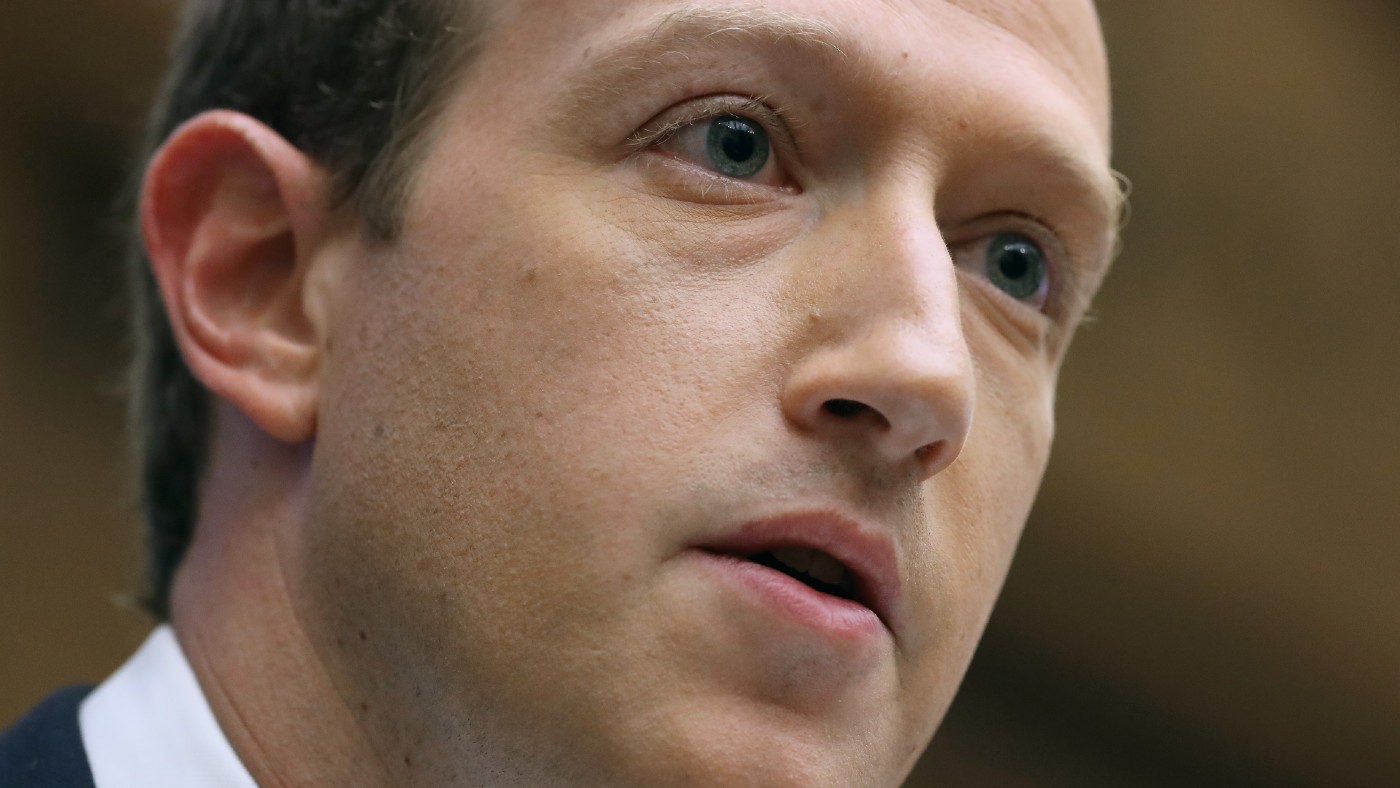Facebook: is it ‘monetising misery’?
Leaked documents revealed the social network’s ‘corporate hypocrisy’

A free daily email with the biggest news stories of the day – and the best features from TheWeek.com
You are now subscribed
Your newsletter sign-up was successful
The full extent of Facebook’s “corporate hypocrisy” was laid bare last week, when a huge cache of internal documents was leaked to the press, said The Sunday Times. These documents, handed to The Wall Street Journal, revealed that at the very time Mark Zuckerberg was boasting that Facebook was connecting billions of people to “authoritative” information about Covid jabs, his own people were warning him that the platform was, in fact, a “cesspool” of anti-vaxxer disinformation. They also revealed that the platform allowed celebrities to post content that would normally be banned, and that it had been slow to act on warnings that it was being used by drug cartels and people traffickers. More shockingly still, we learnt that the firm’s own research had concluded that Instagram (which is owned by Facebook) was damaging the mental health of many of its young users. Yet “nothing was done” about this. “We make body-image issues worse for one in three teen girls,” read one slide from an internal presentation. The research found that 13% of British teens reporting suicidal thoughts traced them directly to Instagram.
This should come as no great surprise, said Laura Freeman in The Times. Instagram monetises misery. It “shows you the rich, the thin, the happy partying few. It makes you feel lesser so that you want to spend more.” Since 2012, the year Facebook bought Instagram, suicides among girls and young women have risen by 94% in England and Wales, said Jemima Lewis in The Daily Telegraph. Yet so far, the tech giants have been “amazingly successful at shrugging off responsibility” for any of this. Only this spring, Zuckerberg was insisting that social media makes you happier. It reminds me of those old cigarette ads: “For Digestion’s Sake – Smoke Camels!” Instagram claims the leaked research is actually proof of its “commitment to understanding complex and difficult issues”. But if it has any such aim, why does it make appalling content about anorexia and self-harm so easily available? This is “corporate wickedness on a grand scale”.
To be fair, the research findings weren’t all negative, said Derek Thompson in The Atlantic. Yes, Instagram drives “obsessive thinking” about body image and status. Yet while many users said they found the site “compulsive but depressing”, most said it could also be “enjoyable and useful”. So it’s a “fun product” which is “unwholesome in large doses” and can be addictive. Like alcohol, in fact. So we need to restrict it like we do alcohol, with warnings against over-use and addiction and, in particular, protections for the young.
The Week
Escape your echo chamber. Get the facts behind the news, plus analysis from multiple perspectives.

Sign up for The Week's Free Newsletters
From our morning news briefing to a weekly Good News Newsletter, get the best of The Week delivered directly to your inbox.
From our morning news briefing to a weekly Good News Newsletter, get the best of The Week delivered directly to your inbox.
A free daily email with the biggest news stories of the day – and the best features from TheWeek.com
-
 Local elections 2026: where are they and who is expected to win?
Local elections 2026: where are they and who is expected to win?The Explainer Labour is braced for heavy losses and U-turn on postponing some council elections hasn’t helped the party’s prospects
-
 6 of the world’s most accessible destinations
6 of the world’s most accessible destinationsThe Week Recommends Experience all of Berlin, Singapore and Sydney
-
 How the FCC’s ‘equal time’ rule works
How the FCC’s ‘equal time’ rule worksIn the Spotlight The law is at the heart of the Colbert-CBS conflict
-
 Moltbook: The AI-only social network
Moltbook: The AI-only social networkFeature Bots interact on Moltbook like humans use Reddit
-
 Are AI bots conspiring against us?
Are AI bots conspiring against us?Talking Point Moltbook, the AI social network where humans are banned, may be the tip of the iceberg
-
 Are Big Tech firms the new tobacco companies?
Are Big Tech firms the new tobacco companies?Today’s Big Question A trial will determine whether Meta and YouTube designed addictive products
-
 Silicon Valley: Worker activism makes a comeback
Silicon Valley: Worker activism makes a comebackFeature The ICE shootings in Minneapolis horrified big tech workers
-
 AI: Dr. ChatGPT will see you now
AI: Dr. ChatGPT will see you nowFeature AI can take notes—and give advice
-
 Is social media over?
Is social media over?Today’s Big Question We may look back on 2025 as the moment social media jumped the shark
-
 Metaverse: Zuckerberg quits his virtual obsession
Metaverse: Zuckerberg quits his virtual obsessionFeature The tech mogul’s vision for virtual worlds inhabited by millions of users was clearly a flop
-
 The robot revolution
The robot revolutionFeature Advances in tech and AI are producing android machine workers. What will that mean for humans?